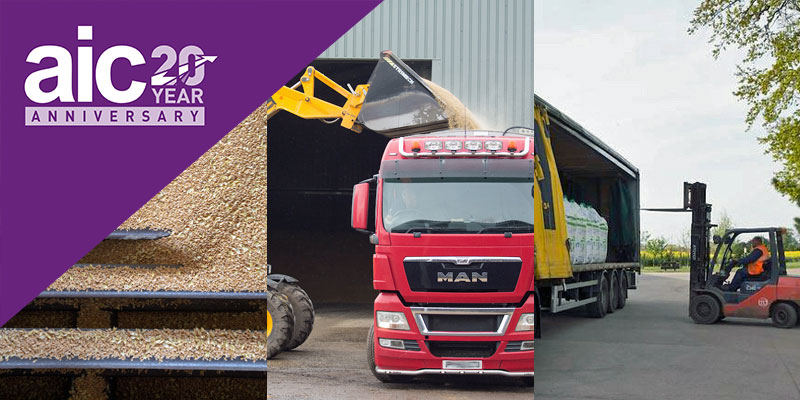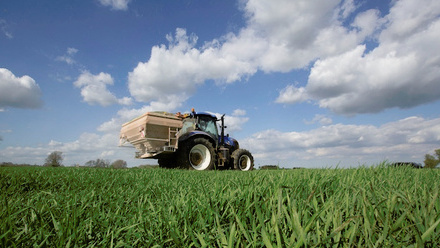AIC at 20: How assurance schemes work to keep UK food and animal feed safe

As AIC marks 20 years as the UK agri-supply industry’s leading trade association, we're looking back at some of its greatest achievements since it was founded in 2003.
Each week throughout 2023, we’ll explore a major achievement where AIC represented its Member businesses, promoted the benefits of modern commercial agriculture in the UK, and supported collaboration throughout the food chain.
On World Food Safety Day, we explore how food and feed assurance schemes help to maintain safety and ensure traceability of products destined for human and animal consumption in the UK.
Keeping food and feed safe
Providing safe food and animal feed is essential to ensure that the risk of a food or feed safety incident is minimised. AIC Services' feed trade assurance schemes form a vital part of the assured supply chain which reduces risk as much as possible.
AIC Services operates three major assurance schemes in this area - the Feed Material Assurance Scheme (FEMAS), Universal Feed Assurance Scheme (UFAS), and Trade Assurance Scheme for Combinable Crops (TASCC).
Watch the video below to learn more about how these schemes keep food and feed safe, and the rigorous checks in place to make sure standards are maintained.
AIC's work encompasses three guiding pillars - Productivity, Environment and Competitiveness - delivering for sustainability and contributing to the circular economy. Find out more here.
The value of FEMAS
FEMAS provides an assurance system to make sure that feed ingredients destined for UK livestock meet safety requirements, as defined by legislators and industry.
It covers all feed ingredients intended for direct feeding to animals or for inclusion in compound feeds and blends. It is based on Hazard Analysis Critical Control Point (HACCP) principles, a system originally pioneered by the space agency NASA, and forms the bedrock of UK and EU food and feed legislation.
The scheme dovetails with UFAS and UK livestock assurance schemes, such as Red Tractor, which major supermarkets and retailers require of domestically-produced livestock products.
Scheme Participants are a diverse group of companies, ranging from specialist additive manufacturers to food processors and brewers.
Find out more on the FEMAS webpage and watch the video below.
The coverage of UFAS
It makes sense that products used to feed UK livestock, which are ultimately destined for the human food chain, are assured to safety standards.
UFAS assures that livestock feed meets legal safety requirements, as well as the needs of the supply chain.
It was launched in 1998 and now accounts for well over 95% of the commercially produced compound feed in the UK and Ireland.
A merchants’ standard was later added to the scheme, which widened the scheme's coverage and means UFAS assures about 1,000 Participant sites.
Like FEMAS, the scheme works closely with UK livestock assurance schemes, such as Red Tractor and Quality Meat Scotland, the standards of which are used as the buying specification of the major supermarkets and food retailers.
Find out more on the UFAS webpage.
The confidence of TASCC
TASCC assures the trading of combinable crops for food, animal feed and biofuel, the trading of compound feed and feed materials, and the transport and storage of combinable crops and animal feeds to meet safety standards set by the Government, agencies including the Food Standards Agency, Health and Safety Executive, and the industry.
The scheme was developed because farmers and end users wanted to be sure that crops of grain, oilseeds and pulses were treated responsibly once they left the farm.
This includes wheat processed by flour millers to make products such as bread, and malting barley for the brewers and distillers in the drinks industry. It provides independent verification that the trade is meeting food and feed safety laws.
Learn more on the TASCC webpage and watch the video below.
Find out more about AIC Services trade assurance schemes on the AIC website. Make sure you're following AIC on Twitter and LinkedIn for regular updates.
Visit the AIC at 20 webpage for more content like this.







